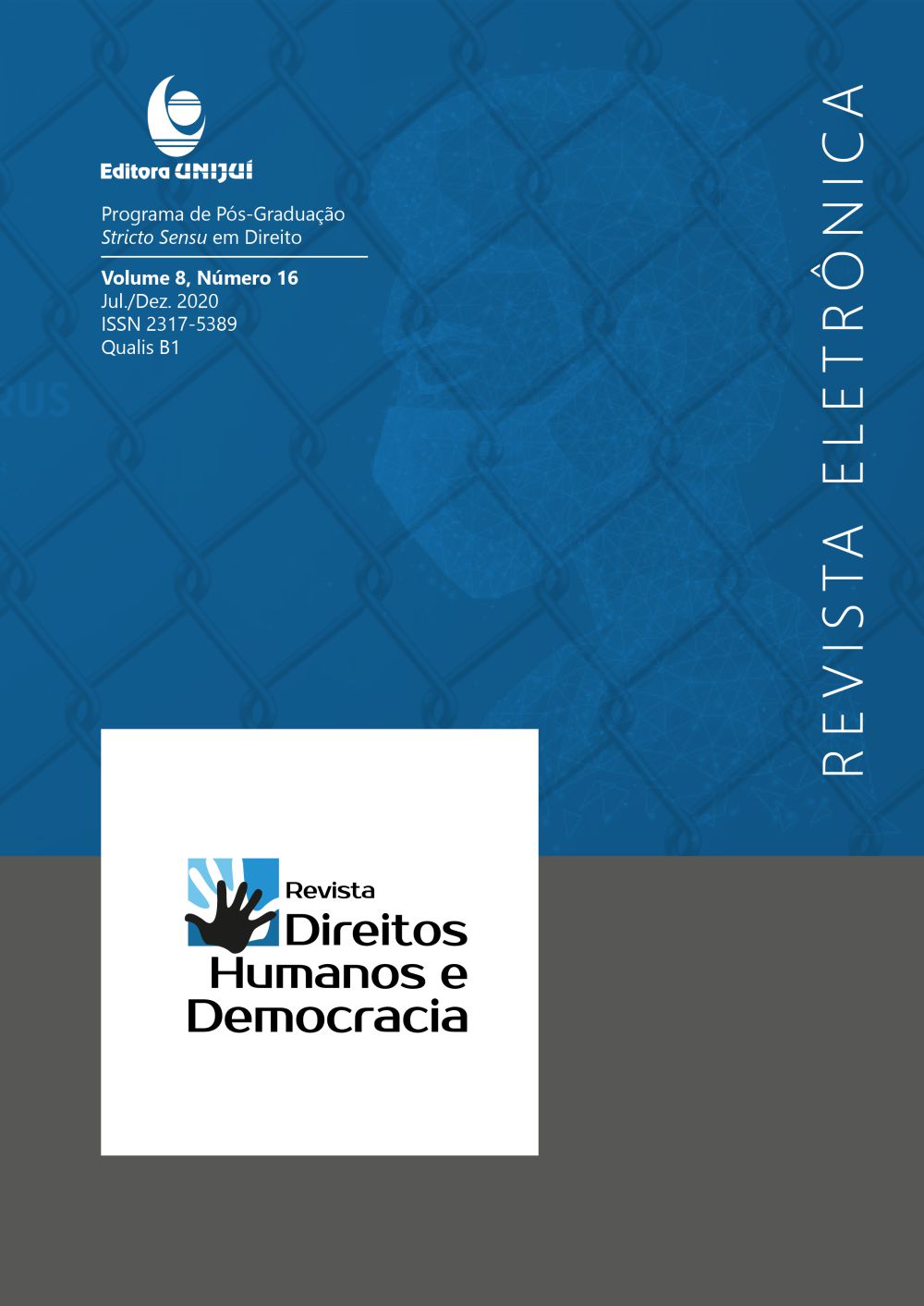UM BALANÇO DAS POLÍTICAS PÚBLICAS DE TRABALHO, EMPREGO E RENDA PARA A POPULAÇÃO LGBT NO BRASIL E NA ARGENTINA (2004-2014)
DOI:
https://doi.org/10.21527/2317-5389.2020.16.40-55Abstract
Este trabalho é fruto da pesquisa intitulada “Direitos LGBT e Políticas Públicas de Trabalho, Emprego e Renda no Brasil e na Argentina (2004-2014): Mapeamento Crítico Preliminar” vinculada ao Núcleo de Estudos, Pesquisas e Extensão em Sexualidade, Corporalidades e Direitos da Universidade Federal do Tocantins – UFT. O estudo mapeou documentos que nortearam as políticas públicas de trabalho no Brasil e Argentina. Em um contexto de refração dos direitos humanos após avanço neoliberal através dos governos do campo de esquerda e consequentemente do retorno de governos de direita tanto na Argentina quanto no Brasil, torna-se central refletir sobre o período de gestão governamental do Partido Justicialista (Argentina) e Partido dos Trabalhadores (PT). Durante os anos de governo destes partidos, pode-se observar a criação de uma agenda anti-homofobia nestes dois países, através de ações concernentes aos direitos LGBT (lésbicas, gays, bissexuais, travestis e transexuais) via Poder Executivo e Judiciário, no caso brasileiro ou via Poder Legislativo, como na situação Argentina. O processo de organização das lutas da população LGBT remontam de tempos onde ambos países vivenciavam a ditadura militar entre o final da década de 1960 e 1970. Com a redemocratização esses países vão vivenciar experiências distintas de tensionamento da sociedade civil junto ao Estado. A demanda por trabalho, emprego e renda subjaz a segmentos diversos cuja posição de classe social referencia-se de maneira latente, entretanto, a identidade de gênero e a orientação sexual passam a ser trazidas como marcadores sociais que também vão produzir desigualdade social no acesso a qualificação e ao trabalho formal.
Downloads
Published
How to Cite
Issue
Section
License
By publishing in the Revista Direitos Humanos e Democracia, authors agree to the following terms:
Articles are licensed under the Creative Commons Atribuição 4.0 Internacional (CC BY 4.0), which allows:
Share — copy and redistribute the material in any medium or format;
Adapt — remix, transform, and build upon the material for any purpose, including commercial use.
These permissions are irrevocable, provided the following terms are respected:
Attribution — authors must be properly credited, with a link to the license and indication of any modifications made;
No additional restrictions — no legal or technological measures may be applied that restrict the use permitted by the license.
Notices:
The license does not apply to elements in the public domain or covered by legal exceptions.
The license does not grant all rights required for specific uses (e.g., image rights, privacy, or moral rights).
The journal is not responsible for opinions expressed in the articles, which remain the sole responsibility of the authors. The Editor, with the support of the Editorial Committee, reserves the right to suggest or request modifications when necessary.
Only original scientific articles presenting research results of interest, not previously published or simultaneously submitted to another journal with the same purpose, will be accepted.
References to trademarks or specific products are intended solely for identification purposes and do not imply any promotional endorsement by the authors or the journal.
License Agreement: Authors retain copyright over their articles and grant the Revista Direitos Humanos e Democracia the right of first publication.













